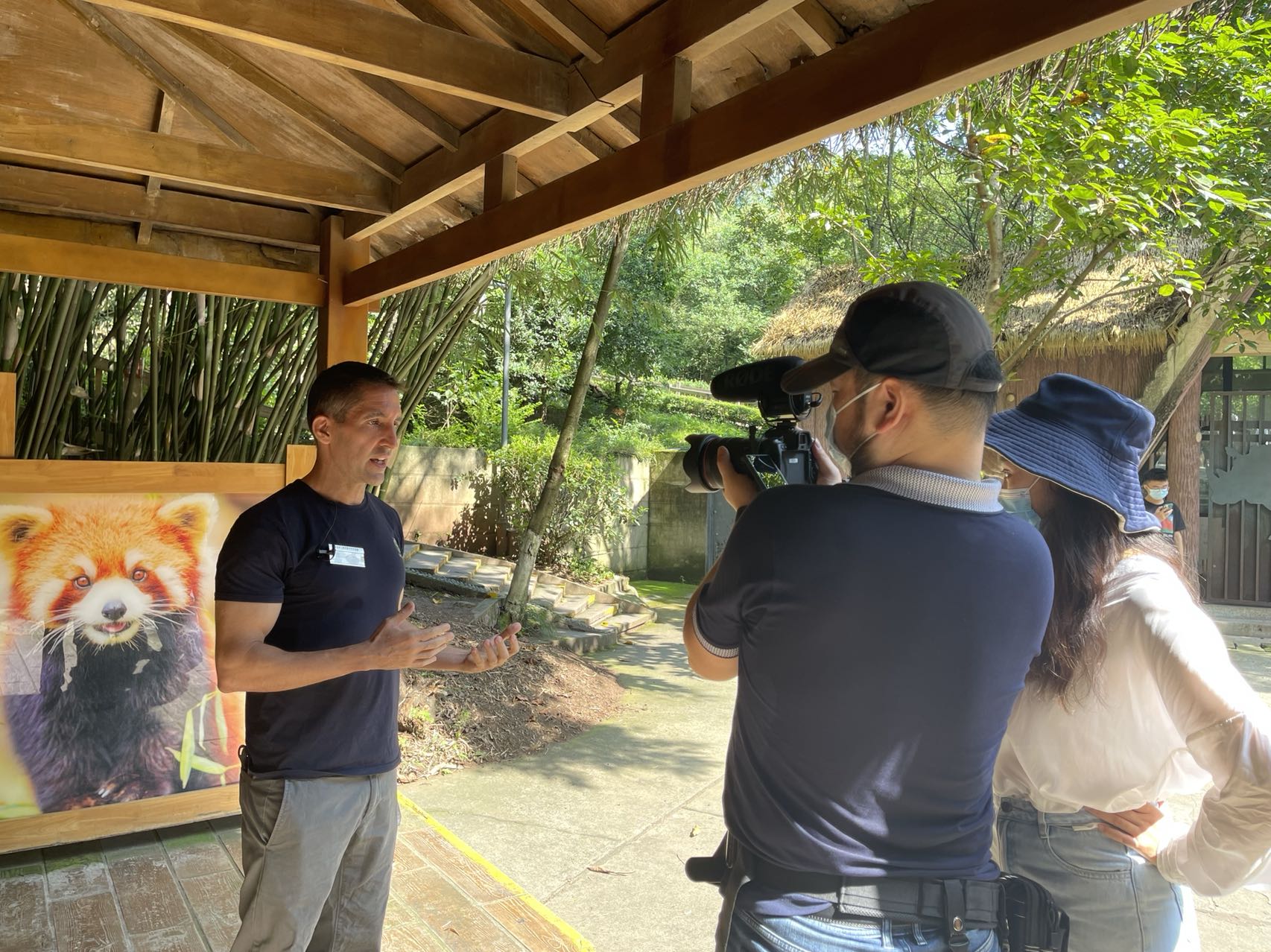Falling in Love with Pandas

Mr. James Ayala (Left). (COURTESY PHOTO)
By James Ayala
Everything in its Right Place is a song by the British rock band Radiohead and it pretty much sums up how I have felt during my past 10 years working in the Chengdu Panda Base. When I first arrived at the Panda Base, it was instantly clear what the Base needed — it was in my job description after all.
For me to survive away from my family for such long periods, I didn't just need a fulfilling job, I really needed another family. As much as I love the work that I do, and find deep personal meaning in it, in the end, it is the warmth, compassion and friendship of my colleagues, that transcends both language and cultural barriers, which has kept me working at the Panda Base. During my first day of work, Hou Rong, director of the research at the time, met with me and gave me carte blanche. She told me that she would support any work that would improve the welfare and management of the pandas, and she meant it. From the beginning, her support, and the support of my colleagues, have meant the world to me.
For my first few months, I immersed myself in everything concerning pandas. The reason I enjoy training pandas so much is that the whole process is based on trust and forming a bond with each animal.
In order to be an effective trainer, you need to understand the individual personality and needs of each panda. While they all appear to look the same, they actually have strikingly different personalities. As trainers, we need to acknowledge this, working at a pace with which the panda is comfortable, and then nearly anything is possible.
As a recent example, during a routine veterinary checkup, it was discovered one of our pandas had a tumor. Immediately, we began training him to accept ultrasound exams to monitor the progression of the tumor. He was very suspicious at first, but by taking the time to gain his trust, we were able to conduct multiple voluntary ultrasound examinations. Unfortunately, during one of the examinations, we noticed that the tumor had begun growing. However, because of the training program, we were able to detect the problem sufficiently early to treat him successfully. The panda has fully recovered and is now living a healthy, normal life. Knowing that my training work helped save him is one of my career highlights.
Recently, I sent my mother a video of some examples of the pandas' behaviors and she said, "If I had your job, I would just watch the pandas all day and never work." I had to laugh because my job was literally to watch pandas all day — it was in my job description after all, and again I could not be happier.
My past 10 years at the Chengdu Panda Base has truly been an unforgettable experience. I am eternally indebted to Dr. Zhang Zhihe, the former director, and vice director Hou Rong for giving me this incredibly rare opportunity and for putting their trust in me. I am equally indebted to director Wu Yongshen for his tremendous, continued support and I am excited to look ahead to the great things that the future will bring.
Finally, through thick and thin, good times and bad, including the COVID-19 pandemic that we have all weathered together, the staff have been my family and anchors through the storm. I am truly proud of the work and accomplishments we have achieved as a team to conserve giant pandas and grateful to be a small part of everything at the Chengdu Panda Base.
James Ayala, born in New York, has over 25 years of experience working on wild animals. For the past 10 years, he has been engaged in the research and conservation of giant pandas at the Chengdu Research Base of Giant Panda Breeding in China.






